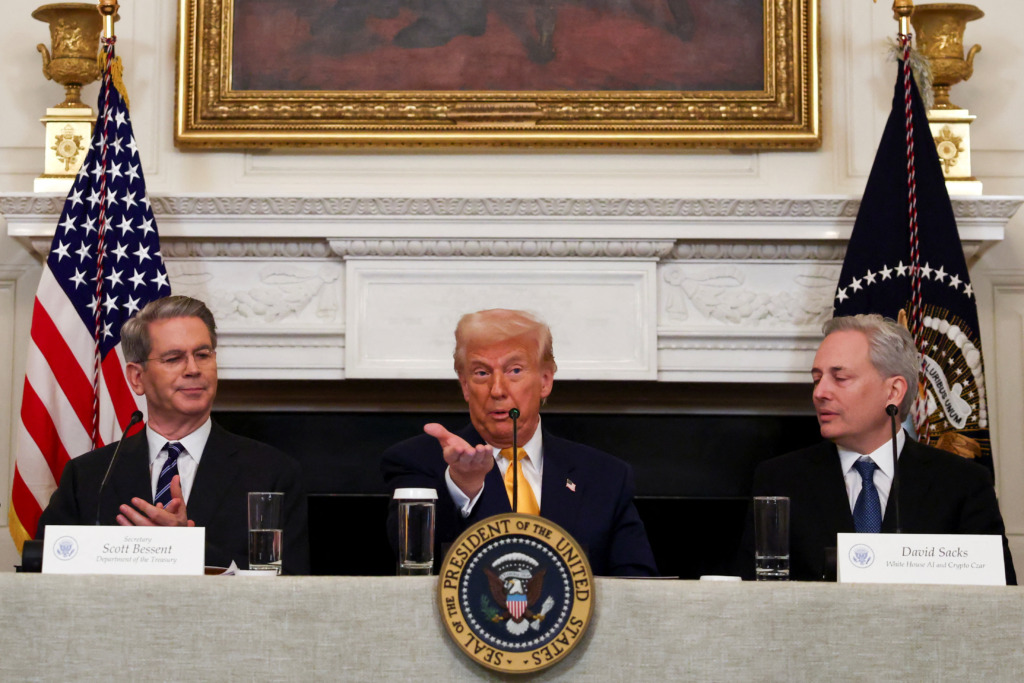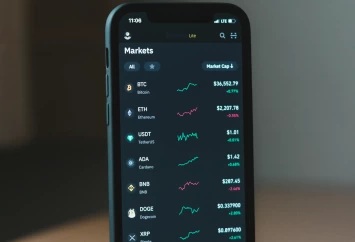The cryptocurrency industry took center stage last week as the White House hosted a high-profile Crypto Summit, bringing together policymakers, industry leaders, and experts to discuss the future of digital assets. The event focused on critical topics like regulation, innovation, and the role of cryptocurrencies in the global economy. For crypto beginners, enthusiasts, and investors, this summit provided valuable insights into how governments and institutions are approaching the rapidly evolving crypto landscape. In this article, we’ll break down the key takeaways from the White House Crypto Summit, explore what they mean for the industry, and discuss how you can stay ahead in this dynamic space.

In This Article
- What Was the White House Crypto Summit About?
- Key Themes and Discussions
- Regulatory Frameworks for Cryptocurrencies
- Balancing Innovation and Consumer Protection
- The Role of Central Bank Digital Currencies (CBDCs)
- Environmental Concerns and Sustainable Crypto Practices
- Implications for Crypto Investors and Enthusiasts
- How to Stay Informed and Protected in the Crypto Space
- FAQs About the White House Crypto Summit
What Was the White House Crypto Summit About?
The White House Crypto Summit was a landmark event aimed at addressing the opportunities and challenges posed by digital assets. Attendees included government officials, blockchain experts, and representatives from leading crypto companies. The summit focused on creating a balanced approach to crypto regulation, fostering innovation, and ensuring consumer protection.
This event underscored the growing importance of cryptocurrencies in the global economy and highlighted the need for clear regulatory frameworks to guide their development. For those new to crypto, this is a sign that digital assets are becoming mainstream, but they also come with risks and responsibilities.
Key Themes and Discussions
1. Regulatory Frameworks for Cryptocurrencies
One of the central topics at the summit was the need for comprehensive crypto regulation. Policymakers emphasized the importance of creating rules that protect consumers without stifling innovation.
- Key Points:
- The U.S. government is working on clearer guidelines for crypto taxation, anti-money laundering (AML), and know-your-customer (KYC) requirements.
- There was a call for international cooperation to prevent regulatory arbitrage, where companies move to jurisdictions with looser rules.
What It Means for You:
As regulations evolve, it’s crucial to stay compliant. Use trusted platforms like the best cryptocurrency exchanges that adhere to regulatory standards.
2. Balancing Innovation and Consumer Protection
The summit highlighted the dual challenge of fostering innovation while protecting consumers from scams and fraud.
- Key Points:
- Policymakers acknowledged the transformative potential of blockchain technology but stressed the need for safeguards.
- There was a focus on educating consumers about the risks of investing in cryptocurrencies.
What It Means for You:
Educate yourself before diving into crypto. Check out our beginner’s guide to cryptocurrency for a solid foundation.
3. The Role of Central Bank Digital Currencies (CBDCs)
The discussion around CBDCs was a major highlight. Central banks worldwide are exploring the creation of their own digital currencies.
- Key Points:
- CBDCs could provide a government-backed alternative to decentralized cryptocurrencies.
- Concerns were raised about privacy and the potential for increased surveillance.
What It Means for You:
Keep an eye on CBDC developments, as they could impact the broader crypto market.
4. Environmental Concerns and Sustainable Crypto Practices
The environmental impact of cryptocurrencies, particularly Bitcoin mining, was a hot topic.
- Key Points:
- The summit called for more sustainable practices in crypto mining.
- There was a push for the adoption of energy-efficient consensus mechanisms like Proof of Stake (PoS).
What It Means for You:
Consider investing in eco-friendly cryptocurrencies or platforms that prioritize sustainability.
Implications for Crypto Investors and Enthusiasts
The discussions at the White House Crypto Summit have several implications for the crypto community:
- Increased Regulatory Scrutiny: Expect more regulations aimed at protecting consumers and preventing fraud.
- Greater Institutional Adoption: Clearer rules could encourage more institutions to enter the crypto space.
- Focus on Education: As the industry matures, there will be a greater emphasis on educating users about risks and best practices.
- Sustainability Matters: Environmental concerns will shape the future of crypto projects and investments.
For tools to navigate these changes, explore our guide to essential crypto tools and trackers.
How to Stay Informed and Protected in the Crypto Space
- Follow Reputable News Sources: Stay updated on regulatory developments and industry trends.
- Use Secure Wallets: Protect your assets with trusted wallets like those listed in our guide to the best cryptocurrency wallets.
- Diversify Your Portfolio: Spread your investments across different assets to mitigate risk.
- Stay Compliant: Keep track of tax obligations and regulatory requirements.
FAQs About the White House Crypto Summit
1. What Was the Purpose of the White House Crypto Summit?
The summit aimed to address the challenges and opportunities of digital assets, focusing on regulation, innovation, and consumer protection.
2. Will the Summit Lead to New Crypto Regulations?
Yes, the discussions are expected to pave the way for clearer and more comprehensive crypto regulations.
3. How Will CBDCs Affect Decentralized Cryptocurrencies?
CBDCs could provide a government-backed alternative but may also raise concerns about privacy and centralization.
4. What Are the Environmental Concerns Around Cryptocurrencies?
Cryptocurrencies like Bitcoin require significant energy for mining, leading to calls for more sustainable practices.
5. How Can I Stay Compliant with Crypto Regulations?
Use regulated platforms, keep detailed records of your transactions, and consult a tax professional if needed.
6. Where Can I Learn More About Crypto for Beginners?
Check out our beginner’s guide to cryptocurrency for a comprehensive introduction.
7. What Tools Can Help Me Navigate the Crypto Space?
Explore our guide to essential crypto tools and trackers for recommendations.
Conclusion
The White House Crypto Summit marked a significant moment for the cryptocurrency industry, highlighting the need for balanced regulation, innovation, and consumer protection. As the crypto landscape continues to evolve, staying informed and proactive is key to navigating this dynamic space. Whether you’re trading on the best cryptocurrency exchanges or securing your assets in the top crypto wallets, understanding the implications of these discussions will help you make smarter decisions.
For more insights and resources, visit The Crypto Retail Hub and stay ahead in the world of digital assets.
Financial Advice Disclaimer:
The information provided in this article is for educational and informational purposes only and should not be construed as financial, investment, or legal advice. Cryptocurrencies are highly volatile and speculative assets, and investing in them carries significant risks, including the potential loss of your entire investment. The content of this article does not constitute a recommendation to buy, sell, or hold any cryptocurrency or financial product.
Always conduct your own thorough research and consult with a qualified financial advisor, tax professional, or legal expert before making any investment decisions. Past performance is not indicative of future results, and the cryptocurrency market is subject to rapid changes, regulatory developments, and technological advancements that may impact the value and viability of digital assets.
The author and publisher of this article are not responsible for any financial losses, damages, or other consequences that may arise from your use of the information provided. Invest at your own risk and only with funds you can afford to lose.



